It’s no secret that the world’s bicycle trade runs on abilities and merchandise developed within the factories of China and Taiwan, two international locations confronted with heavy new US commerce tariffs as of 5 April.
All international locations confronted a ten% baseline tariff, an import tax payable on all items shipped into the U.S., however China and Taiwan – already topic to heavy tariffs set by Trump’s administration throughout his first time period – are set to pay 34% and 32% respectively in extra import taxes. That brings the overall tariff for items imported to the U.S. from China to 54%. China has already clapped again, with heavy new tariffs of their very own, and the fluid scenario is altering each day.
What is evident is that the repercussions are doubtlessly seismic, with many manufacturers reliant on exports from a number of international locations now going through huge charges. However what does that imply for the bike trade, and its clients?
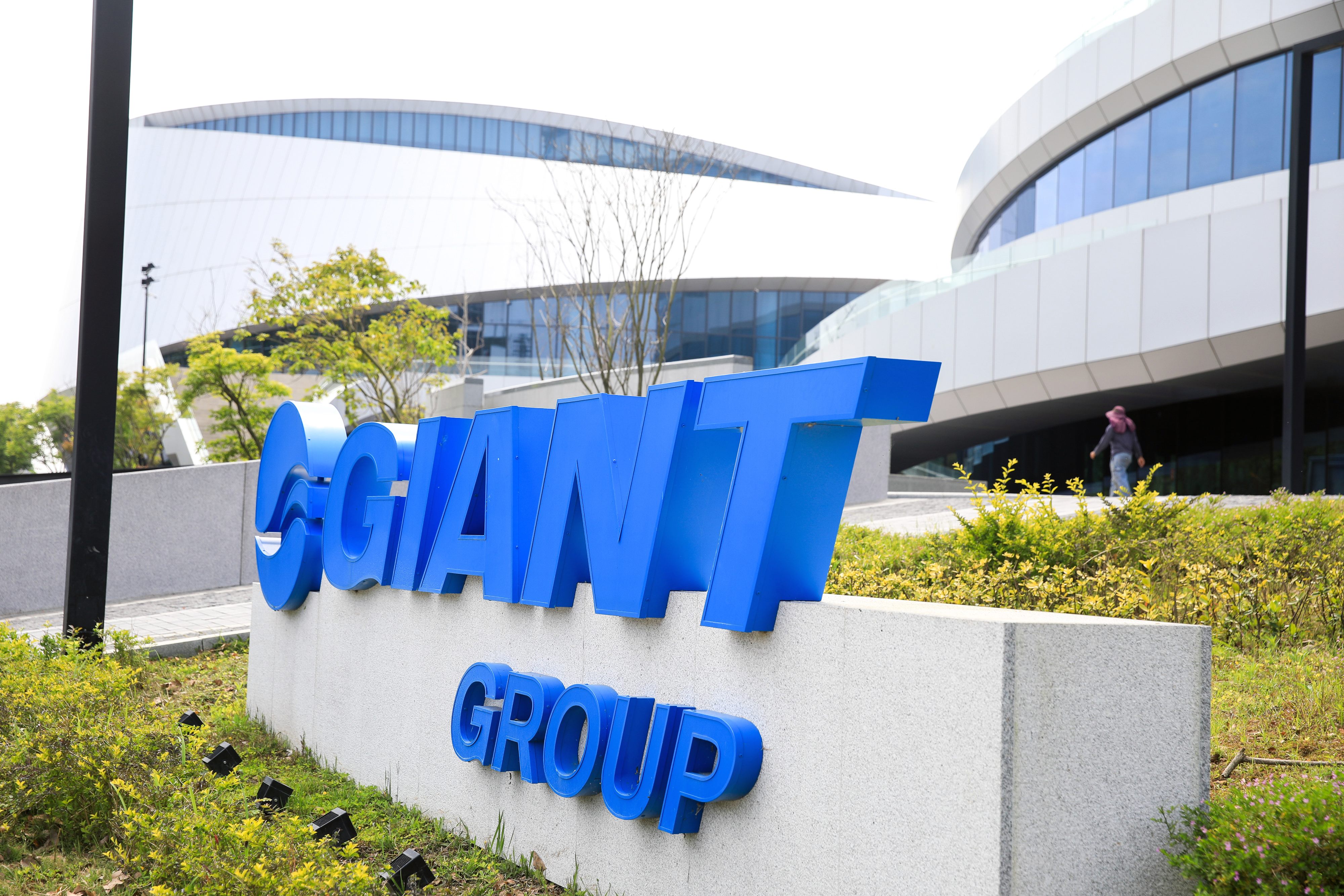
(Picture credit score: Getty Photographs)
Big and Merida, for instance, occupy reverse ends of Taiwan, with a plethora of services in between; parts of manufacturing additionally happen in Vietnam and elsewhere – a rustic additionally going through tariffs and never so closely mentioned within the media. While mainstream manufacturers – these names you see on the downtubes of the overwhelming majority of bikes ridden the world over – are closely invested within the design course of and creation of body moulds, hardly any personal their very own factories. Their frames come from the services of Big, Merida, and different lesser recognized producers.
There are numerous manufacturers who’ve their headquarters within the U.S., Specialised and Trek – two of the ‘large three’, alongside Big in Taiwan – are key examples. Nonetheless, it’s not simply those that name the USA house who can be affected, because the tariffs can be imposed on any model transport into the nation; UK manufacturers with clients throughout the pond, may also face new tariffs.
Advertising and marketing manufacturers will ‘evaporate’
In line with the proprietor of Time Bicycles, Tony Karklin, the tariffs may even see some Chinese language companies buying extra European and US manufacturers, to ascertain their very own distribution entities or meeting operations contained in the U.S. border. In addition to Time, Karklin owns and runs Cardinal, which operates a considerable operation producing bicycles and parts in Portugal and different elements of Europe, together with Lithuania.
As Chinese language and Taiwanese owned corporations search to maintain their massive operations busy – with the information from nearly all corners that bike manufacturers are pausing their Asian body orders – Karklin thinks we’re going to see a seismic shift within the construction and possession of bicycle manufacturing, with extra massive Asian corporations increasing their very own manufacturers.
The most recent race content material, interviews, options, evaluations and knowledgeable shopping for guides, direct to your inbox!
Reflecting on the present state of affairs, he stated: “[It is already very] arduous to promote on this market; nobody is actually promoting something at full worth but; retailers are extra cautious than ever and we have now all these recession fears.”
Karklin refers all through the dialog to ‘sports activities advertising’ manufacturers, saying a lot of them “will simply evaporate”.
“Now we have now all these tariffs, manufacturers will cease ordering on the OEM [Original Equipment Manufacturer] stage. We’ll then have large factories with extra capability, they’re going to be seeking to purchase manufacturers, or launch their very own manufacturers, to make use of that capability,” he stated.
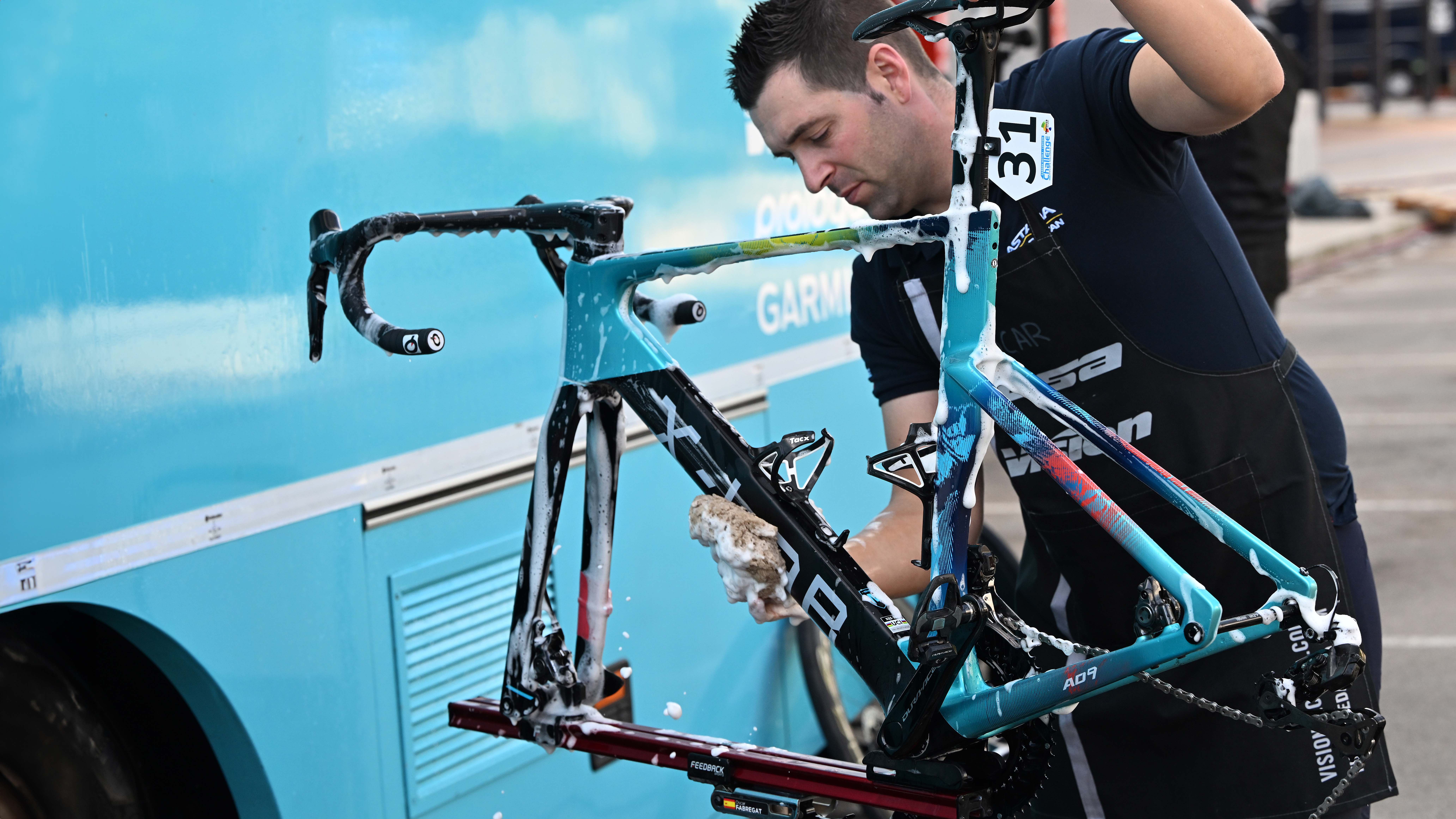
XDS has invested in large model group sponsorship, with Astana XDS X-Lab
(Picture credit score: Future/Andy Jones)
Partly due to slowing demand and over-inventory on the large producers – following the well-documented results of the Covid fueled oversupply – we’re already beginning to see the emergence of well-backed, well-funded Asian operations breaking into the usand European markets with their very own manufacturers. X-Lab by XDS, and their backing of UCI WorldTour group Astana XDS X-Lab, is one such instance.
Is a transfer again to US manufacturing potential?
Trump’s purpose, in introducing these tariffs, is to extend manufacturing in the USA. And Karklin believes that’s potential – stating that some U.S. manufacturers nonetheless have capability to supply at house.
Alec White of White Industries, a U.S. model well-known for its excessive finish machined hubs and parts, makes all of his product on U.S. soil, however he nonetheless wants imports. They use high-quality bearings from Enduro who’re a U.S. based mostly firm, however manufacture in Singapore, Taiwan and China.
“I’m for U.S. jobs and homegrown manufacturing, however, some issues make no sense to make right here. The labour price is simply larger. My costs will possible need to go up, we’re going to attempt to mitigate that as a lot as potential.”
White can also be involved that while in his area he has dozens of machine outlets that may produce nearly something to a excessive stage, it’s the complexity in a number of the humble elements that the U.S. isn’t and may’t be nicely set as much as produce for years.
“A thirty or forty greenback rear hub and free hub for instance. That’s a fancy half, which when mass produced, has a low unit worth, important to constructing hundreds of fairly priced bikes. The experience, course of and know-how they’ve in Asia to supply these elements at quantity, can’t be replicated right here in even a decade, and who’s going to do this? You’d substitute 10 jobs there, with 1 job right here and an enormous machine, and have spent years designing the automation, simply to catch as much as the place they’re now.”
Tariffs don’t simply have an effect on bike gross sales or pricing after all, and economists agree that the tariffs will imply excessive inflation within the quick to mid-term. Which means the issues individuals purchase can be going up – throughout the board – and that’s going to additional squeeze family budgets, hitting spending on luxurious merchandise similar to sports activities items arduous.
“My fear is that on the entry-level finish, nobody within the U.S. can hit [the prices made possible with Asian manufacturing], no matter tariffs. If a child by no means will get a motorcycle as a result of the value goes up, and the cash goes in direction of groceries, that child doesn’t get into biking, and that worries me for the way forward for the biking trade.”
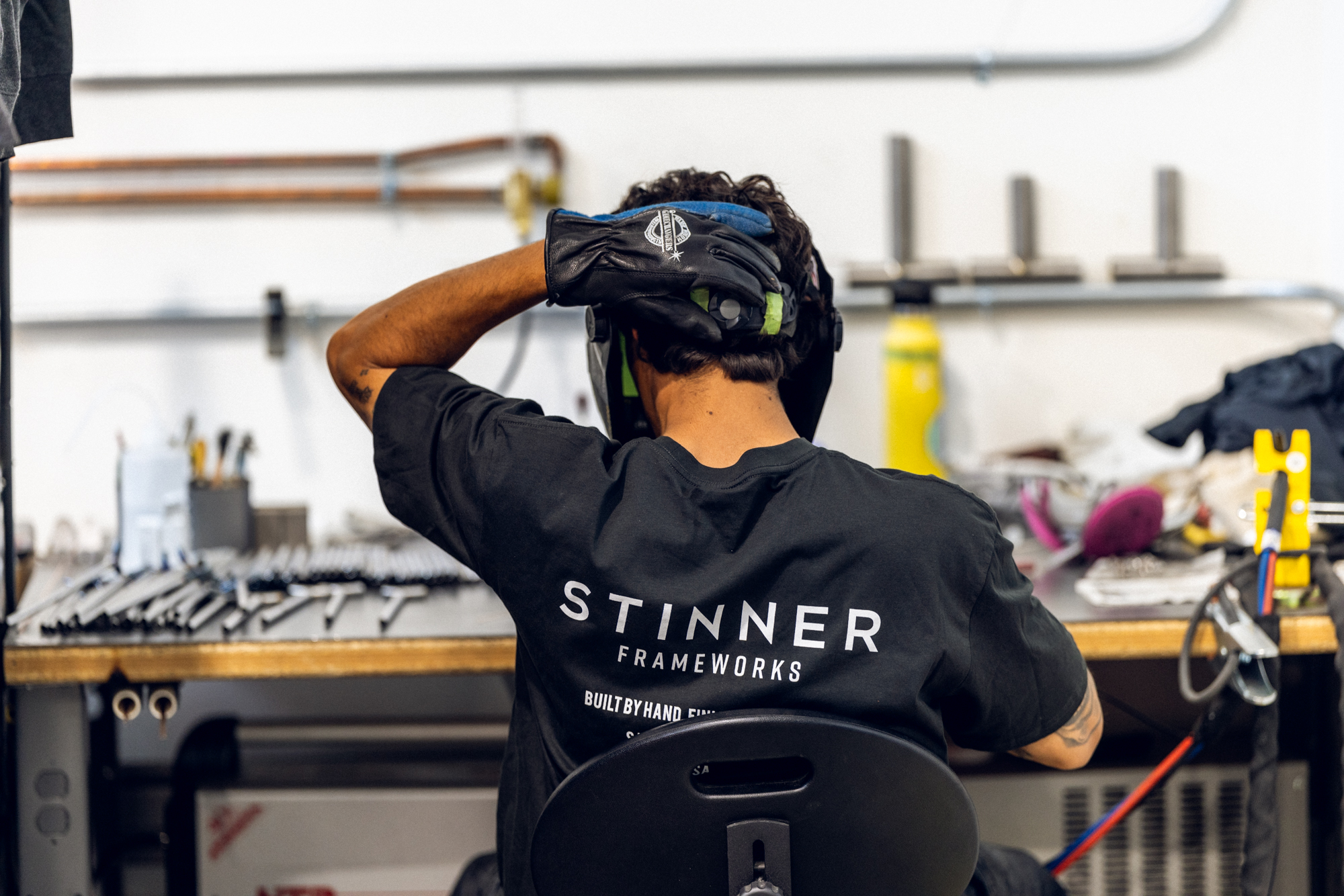
(Picture credit score: Stinner Cycles)
Just a few smaller, US manufacturers, wish to capitalise on the scenario. Stinner Cycles’ Aaron Stinner is launching an OEM service, Stinner Manufacturing, for manufacturers who wish to manufacture within the U.S., he’s already providing capability for as much as 3,000 frames per 12 months and is optimistically cautious: “The present tariffs have implications for anybody operating a enterprise, to not point out its affect on shoppers, jobs and the economic system. For Stinner, the impact is lighter than a model producing abroad, however we’re nonetheless feeling it.”
“We’re seeing a rush as clients buy our inventory bikes now earlier than a possible price improve to offset rises in the price of supplies,” he stated, including “chaos and reactionary enterprise choices put the bike trade in a pickle throughout COVID-19. The worry is that the identical errors can be made now.”
The affect on UK bike manufacturers
Tariffs for the UK, charged within the U.S. when clients obtain items exported from the UK, are sat at 10%. For the time being, which means the UK is – within the context of those developments – doubtlessly in an excellent place to be making frames or assembling bicycles for export, however there can be some kickers; if the body got here from say, Vietnam, U.S. customs considers that topic to the Vietnamese tariff, of 46%.
We reached out to Ben Meir of REAP Bikes, who manufacture carbon bicycles within the UK. “There was no trigger for panic”, he stated, however added, “can we foresee a scenario the place a product we make – that’s equal to a U.S model bike shipped out of Taiwan – however topic to significantly much less tariff than the usbrand bike? Sure, but it surely’s too early to inform if that can stick.”
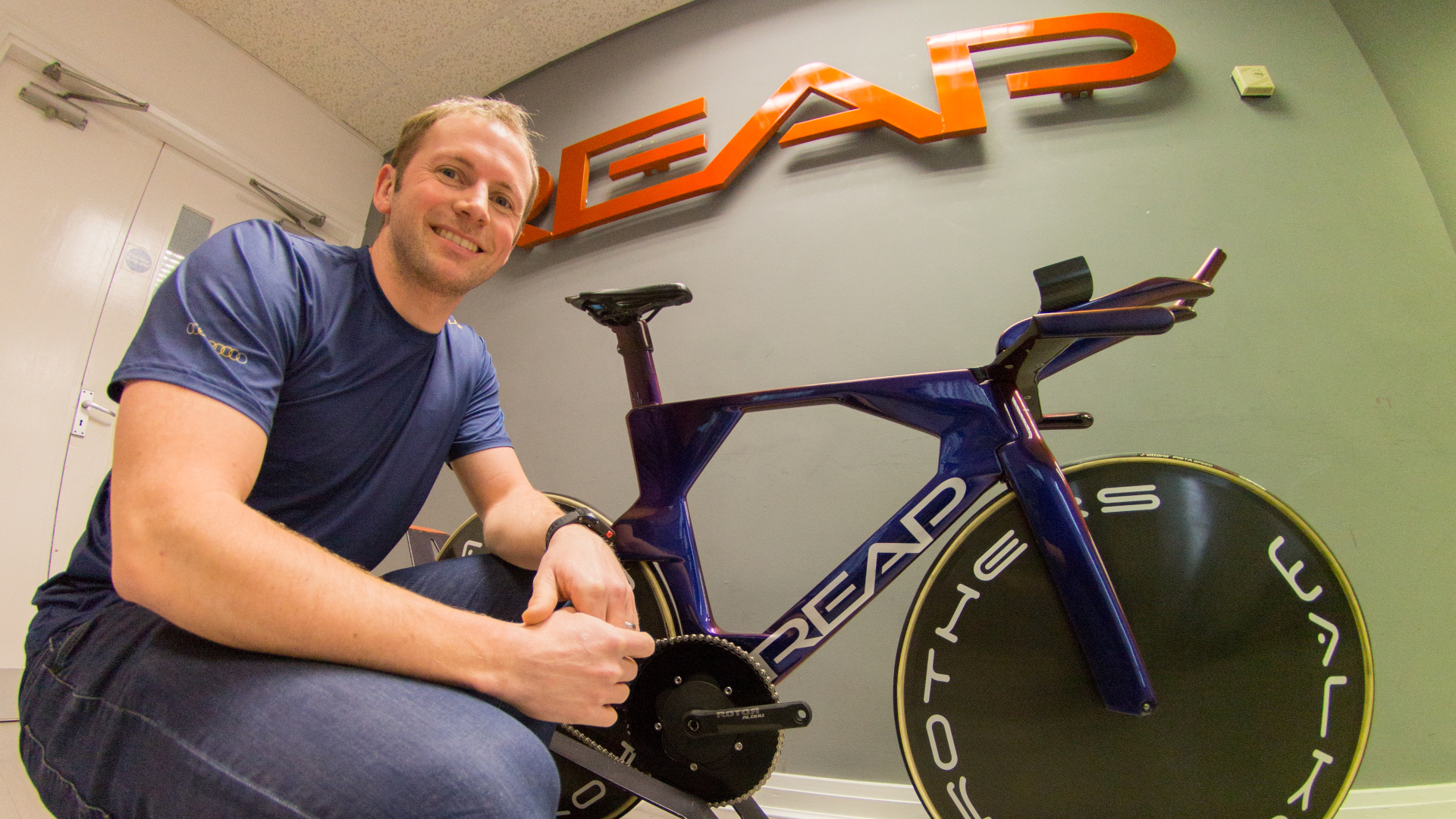
Jason Kenny photographed at REAP’s UK headquarters, with their wholly UK designed and manufactured carbon TT body.
(Picture credit score: REAP bikes)
Alternatively, manufacturers might look to Europe, the place operations don’t match the dimensions of the Asian international locations, however are up and operating, with decrease tariffs lowering the price of imports. Parlee has just lately begun manufacturing in Portugal, the place Time Bicycles additionally produces elements for a few of its bikes, for instance.
Holding inventory on the water
Information of manufacturers holding inventory floating on the water between Asia and the U.S. – or racing to get it stateside earlier than tariffs apply – has turn out to be an everyday subject of dialog amongst trade insiders.
Tern Bicycles, for instance, is staring down the barrel of a $1million import responsibility on product already on its option to the U.S. – if it doesn’t land earlier than the taxes kick in.
North America Supervisor at Tern, Steve Boyd, had a transparent message for shoppers (and coverage makers): “If you happen to’re ready to purchase a motorcycle, this might be an excellent time to purchase. That is our peak season. I’ve obtained a number of months of inventory available, and some months on the way in which. If this takes 60 days to determine, we’re going to overlook this spot. It’s not going to be a run on stock like we noticed within the pandemic, however we are going to see a product scarcity.”
Waiting for the longterm, he felt choices have been being made with a lack of know-how for what’s potential. “Even when we make our bikes right here, we nonetheless need to supply elements elsewhere. The availability chain is world. Changing that isn’t potential within the quick time period. Folks in trade get that, individuals in Washington don’t.”
He additionally thinks the unseen impacts will make it more durable than ever to finish bikes. “If the man you purchase saddles from doesn’t make it via this, who’s going to exchange that inventory? You may’t simply magic up 5000 saddles, and you then’ve obtained a ton of incomplete inventory you possibly can’t promote. The identical subject applies to chains, and a whole lot of elements.”
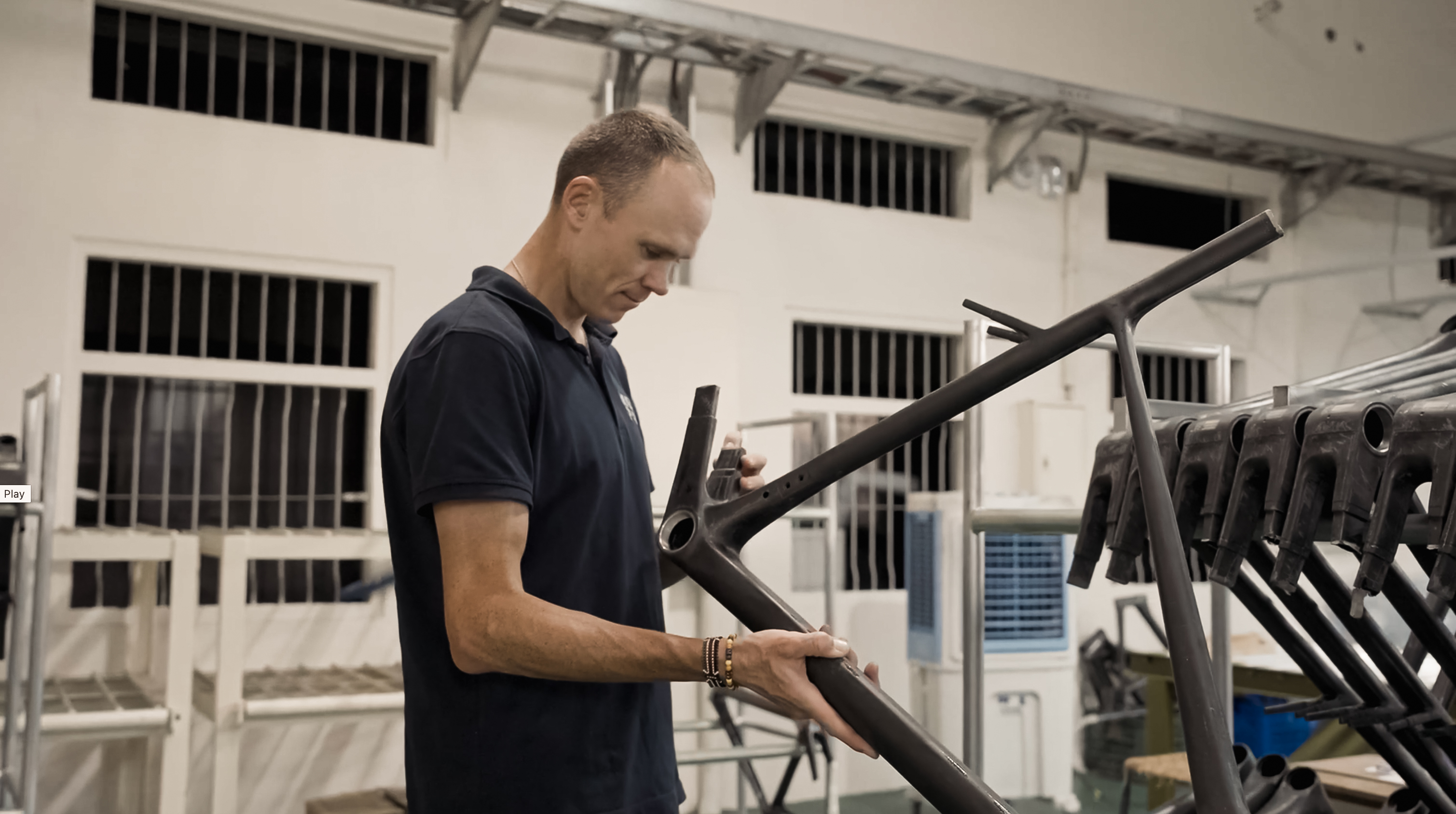
Chris Froome, a shareholder in Issue Bikes, manufacturing bikes in Taiwan
(Picture credit score: Issue)
So will manufacturers who promote into the U.S. be pressured to maneuver their manufacturing there? Most are saying it’s too early to say, and are “ready to see how this all shakes out” within the phrases of Mike Stimola, Enve Composites CEO.
Maybe then, to sum up, Issue’s Rob Gitelis’s phrases are rather more impactful than mine: “Our merchandise are made in Taiwan, they’ve at all times been made in Taiwan, we are going to proceed to supply in Taiwan, I reside in Taiwan. All we all know is that bikes are going to get dearer.”